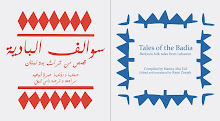عام التعاونيات الزراعية
رامي زريق
أطلقت منظمات الأمم المتحدة المعنية بالغذاء والزراعة أخيراً شعار «٢٠١٢: السنة العالمية للتعاونيات»، مرفقاً ببرنامج عمل يهدف إلى تفعيل دور التعاونيات الزراعية في الدول الفقيرة كوسيلة أساسية لمكافحة الفقر الريفي ودعم الأمن الغذائي. ولفتت في بيانها إلى أن التعاونيات تنشط في جميع القطاعات الاقتصادية، وتضم أكثر من ٨٠٠ مليون منتسب، وتوفّر ١٠٠ مليون فرصة عمل. وتجاوز الإنتاج العام للتعاونيات الثلاثمئة الأكبر في العالم عتبة التريليون دولار عام ٢٠٠٨. أما البرازيل التي شهدت خلال العقد الماضي نمواً زراعياً سريعاً، فقد أنتجت تعاونياتها ٣٧ في المئة من الناتج الزراعي، أي أكثر من ٥ في المئة من الناتج العام. ويمثّل العمل التعاوني المسار الأكثر نجاحاً في تمكين صغار المنتجين من دخول السوق ومواجهة احتكار الشركات الكبرى للأسمدة والبذور على سبيل المثال، إضافة إلى مساهمته في تقوية القدرة التفاوضية للضعفاء. عالمياً، تؤدي التعاونيات الزراعية والغذائية دوراً أساسياً في الأمن الغذائي وتحسين معيشة الفقراء. لكن لبنان، كعادته، يشذ عن القاعدة. فرغم وجود مئات التعاونيات الزراعية، لا يزال الأمن الغذائي يتدهور مقابل ازدياد عدد فقراء الريف.
ويرى معظم المراقبين أن التجربة التعاونية في لبنان لم تكن ناجحة بمعظمها، رغم التمويل الدولي الذي بلغ ملايين الدولارات لبعض التعاونيات الزراعية. واقعٌ مرتبط بغياب الإطار القانوني الملائم لحماية حقوق المنتسبين، وانعدام المساواة في تطبيق القانون بين المواطنين. ووسط غياب هذه المعايير، تصبح التعاونيات أداة سياسية أخرى في يد بعض النافذين لا تساهم إلا في تثبيت علاقات القوة التي تميز النظام السائد.
http://al-akhbar.com/node/33676
قررت وزارة الزراعة أخيراً إعادة إحياء مشروع قانون الزراعة العضوية، ضمن استراتيجيتها الهادفة إلى تنظيم جميع القطاعات الزراعية، وخصوصاً تلك المرتبطة مباشرة بتحسين ظروف العيش في الأرياف، والحفاظ على صحة المواطن. وقد شهد قطاع الزراعة العضوية نمواً سريعاً في السنوات الثلاث الماضية، نتيجة الذعر الذي أصاب الناس بعد نشر الصحف المحلية معلومات مجتزأة عن وجود كميات كبيرة من رواسب المبيدات في الخضار والفاكهة. خوف دفع عدداً كبيراً من المواطنين المنتمين إلى الطبقات الميسورة إلى البحث عن بدائل، ليعاد اكتشاف القطاع العضوي اللبناني. يعود تاريخ الزراعة العضوية في لبنان إلى أكثر من عقد. وأسهم عدد من الناشطين البيئيين والمزارعين والأكاديميين في تأسيس القطاع، بهدف الحفاظ على البيئة ومكافحة الفقر الريفي. نال القطاع بعض الدعم من قبل جهات تنموية أجنبية، فضلاً عن بعض المشاريع الممولة خارجياً بإشراف وزارة الزراعة، من دون أن يكون ضمن أولوياتها.
وكان تطور القطاع في ما يتعلق بالرقابة والحصول على شهادات انتاج معترف بها عالمياً حصيلة جهود القطاعين الأهلي والخاص، وخصوصاً أن الوزارة لم تلتفت إلى قضايا التسويق وتدريب صغار المنتجين على الإنتاج العضوي، واضعة هذه الأمور رهن مشيئة السوق والمانحين. واقع أدى إلى خروج عدد كبير من المزارعين الفقراء من القطاع، ودخول منتجين قادرين على تأمين رؤوس الأموال والتسويق المباشر للأغنياء. لذلك، يجب على الوزارة الاستفادة من هذه التجربة، وإدراك أن القانون ضروري لكنه غير كاف. يجب أن تمد يد الدعم المباشر إلى صغار المنتجين العضويين للمساهمة الفعلية في إنعاش القطاع، وجعله جزءاً من استراتيجية عدالة اجتماعية وبيئية، حتى لا يصبح القطاع نخبوياً هدفه الوحيد جني الأرباح.









+081.jpg)


